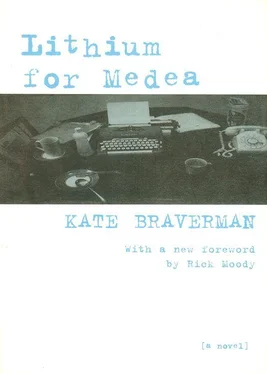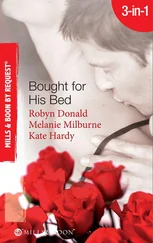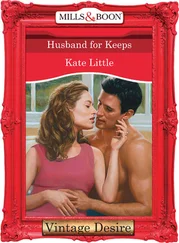Rose’s mother, Katrina, died almost immediately. She was an exceptional woman. They said she read books in Hebrew and Polish, an amazing feat for a woman of that stifling and rigid culture. She died the first winter.
At thirteen Rose was the oldest child. She went to work in the sweatshops. She had never ridden on trolley cars or even been to a real city.
The private detective located her brothers and sisters for me. Our great-aunts and uncles. The people who do not recognize our mothers as kin. I walked into their houses and it was like being in a time warp, a new dimension. One hasn’t simply crossed a room but opened a portal and bounded centuries. A kind of black hole in the fabric.
I asked these great-aunts and uncles about Rose. And across the decades her younger brothers and sisters spit the evil eye in protection. I stood in front of them already tried and infinitely guilty and I felt the dark strangling strangeness of ten thousand claustrophobic Sabbaths.
A horse kicked her head back on the farm, they warned me. She isn’t stable mentally, they said. The head wound. They turned silent. I was amused by their image of a mythical horse. The sheer simplicity of the explanation, its inadequacy and childlike quality of assigning a tangible physical cause to the unique and inexplicable, filled me with something that might have been a combination of laughter and rage. It was neither.
Later I asked our grandmother if a horse kicked her head. She smiled. They’re full of shit, she said.
Rachel, I tell you this about the horse as a bare beginning, an arbitrary symbol. Our line was poisoned with this misshapen intensity some called mental illness before our grandmother. What of her mutant mother, Katrina, who read poetry, read in an age when women were mere extensions of the kitchen, important as a metal soup pot, a necessity, not requiring serious thought? Why, women grew arms only for sweeping and stirring and rocking children. God must have glued them on last, an afterthought.
Why do I tell you this? It’s part of our family history. You’ll see in time.
The telephone rang. This is it, I thought, running back into my house. He’s dead. The final white apology.
I grabbed the telephone and glanced at Jason. He looked white and small in my bed. A pale beached sea mammal, some kind of seal.
“They just wheeled him in for the graft,” Francine said. “I have a real bad feeling about it.”
“Tell me.”
“He’s been in pain since last night. Bad pain.”
“What did the doctor say?”
“Mumbo jumbo.” Francine paused. “I’m scared.”
“Don’t be scared,” I said, my heart racing, blood pumping, everything cooking, grinding, shooting off sparks, going berserk, a body filled with sudden raging storm clouds.
“I feel that I’m being punished,” Francine said.
“That’s a common reaction.” I was trying to be precise with my mother. I was trying to be quiet and calm and take deep soothing breaths like the ones the Red Cross recommends for snakebite victims. I had to be very slow and careful or I would start screaming. And I was afraid that once I started screaming that way I would never stop.
“Listen, kid. We are, all of us, many ages at once,” Francine began. “My ordinary boundaries were malformed. I have arrested development. I am both your mother and your daughter. You are the only thing I’ve ever really loved.”
I didn’t say anything. I couldn’t think of anything simple to say.
“Do you love me?” Francine began crying.
“Yes.”
“But you hate me, too?”
“Yes.”
“You are cruel. You are one callous daughter, may it haunt you. Not that I want to curse you, but—”
“Don’t curse me, Francine,” I said, hard.
“You’re mean to me. You know how lonely I am. Unspeakably lonely. You never visit me. And you know it’s never going to work with Fred. He took the midnight plane back to Miami. He—”
I took a deep breath. “I have to hang up now.”
“Why? What’s the matter?” Francine demanded, all at once wounded and offended, terrified and hurt.
“I feel like I’m dying,” I said.
Outside, the front yard seemed strangely wrong. The gladioli were too bright and sharp. Their fist-sized petals opened like screaming mouths. Their stiff pinkish undersides looked like the organza party dresses I never wanted, the ones Francine pushed me into in the long girlhood I never wanted, never understood.
The mums along the side gate were better. The yellow of bleached linoleum kitchen floors, the sort Francine always wanted for me. The mums were the yellow of a child’s playroom. A room I would never have. The yellow mums were sturdy and undemanding. A practical flower perfect for bedside or table setting. Could I take them to the hospital? The cemetery? Would they stop the slide into day, that yawning crevice, that gaping hot yellow bull’s-eye? “What are you doing?” Jason asked.
He drank orange juice from the bottle. He left the refrigerator door open.
“I’m writing a letter.”
Obviously, you bastard. Are you blind? And I’m waiting for Francine to call. They’re doing the skin graft today. He’s in surgery. The half-ass sadists in their starched white suits are taking neat little squares of skin off his back and thighs and sewing them to his throat. He’s been in pain all night. Even the butchers are worried.
“Come back to bed when you’re done,” Jason said.
He walked back to the bedroom. I heard the television go on. The announcer seemed to be discussing the Harbor Commission.
I looked into my front room. A row of cardboard cartons lined the far wall, so many small caskets with my past buried in them. A preparation for another burial, something enormous? And I remembered that I was waiting for Francine to call me from the hospital. I remembered I was writing a letter to my cousin Rachel.
Somewhere my cousin wondered if she should take the thing they called lithium. Somewhere they were cutting up my father. Somewhere a man was talking about taxation of pleasure yachts. It had become clear to me that I was no longer playing with a full deck. Did anyone notice?
History. Yes. It was during the Great Depression. Our grandmother Rose got off a bus at a wrong stop. A simple mistake. Imagine the immensity of New York City for her. The sheer urban web, the unmeasurable dull winding rot of boulevards for a girl who had lived on a farm, pulled water from a well, fed chickens. New York opened its deranged mouth. Our grandmother had never even been to Warsaw.
She was fourteen years old, with our red hair and dark amber eyes. She literally walked right into him. An accident on a wrong street corner. How dashing and American he must have seemed to her with his stiff black suit and private car. Remember our grandmother had a sense of other things. Didn’t they say she brooded through too dark eyes? Didn’t she sit at her sewing machine and dream pink taffeta?
The sin occurred in his car. He took her driving to the country on a secret Sunday picnic. He dropped her off back at the street corner near her tenement and never saw her again. Our grandmother’s mother, Katrina, was dead by then. Imagine Rose with her belly swollen at her sewing machine hardly knowing what had happened until the monstrous thing became visible. Even then she needed an explanation.
It was the Depression. Times were changing, all right. The patriarchy felt besieged. Her father, Joseph, abandoned her. He scorned her during her pregnancy and literally threw her out into those savage poor streets alone. She could barely speak English. And when she bore twins, particularly twin girls, they took it as an evil omen, proof absolute of the horrible contamination in those alien gentile genes. Besides, who needed more daughters? As if the world wasn’t hard enough.
Читать дальше












